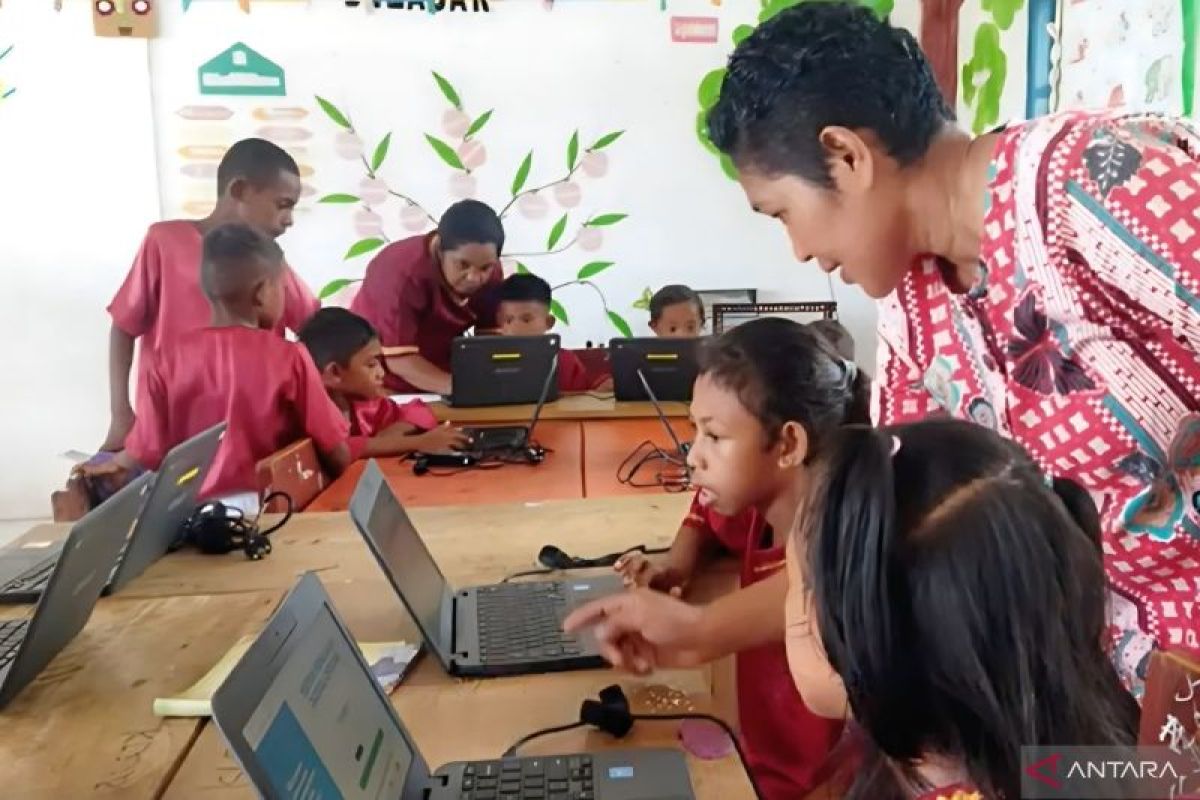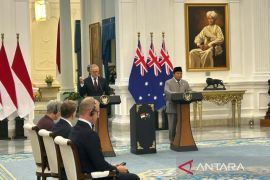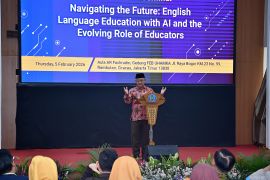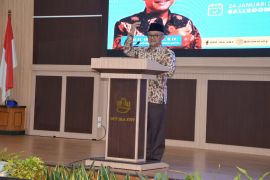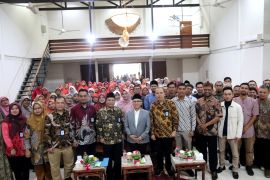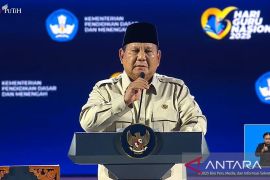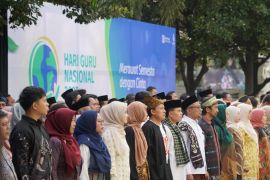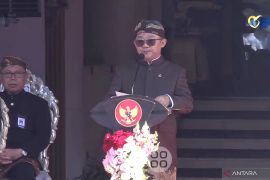The video of Sri Mulyani's speech at the Indonesian Science, Technology, and Industry Convention Forum at the Bandung Institute of Technology (ITB) on August 7, 2025, immediately drew strong public reaction, with critics accusing the state treasurer of disrespecting the teaching profession.
Later, in a clarification posted on her Instagram account, @smindrawati, she confirmed that the viral video was a hoax, a deepfake and an edited excerpt spread by irresponsible individuals.
According to Sri Mulyani, she has never made any statements that offend teachers in Indonesia. She also urged the public to be more discerning in their use of social media.
However, her original speech was not actually positive in tone.
She noted that the large budget for the education sector next year, reaching Rp724.3 trillion, still faces challenges, particularly in management, related to the low salaries of teachers and lecturers.
"Many people on social media -- and I always say -- are not valued as lecturers or teachers because the salaries are not high. This is also a challenge for state finances," said Sri Mulyani, as quoted from a video uploaded at the ITB official YouTube channel.
Furthermore, she questioned whether the welfare of teachers and lecturers could be fully supported by the State Budget, or whether other solutions involving external parties were needed.
"Does everything have to come from state funds, or should there be community participation?" asked the former Managing Director of the World Bank.
However, she did not elaborate on what kind of community participation she was referring to or the mechanism for implementing it.
Following Sri Mulyani's statement, a more recent statement by Religious Affairs Minister Nasaruddin Umar again offended the public when he was seen as belittling the teaching profession.
"If you want to make money, do not be a teacher, be a trader," was an excerpt from Umar's speech that garnered widespread public attention.
His remarks at the opening of the Teacher Professional Education (PPG) event on September 3, 2025, were in stark contrast to his statement that teaching or lecturers are the most noble professions.
So, if their profession is noble and their rewards are heavenly, don't teachers have the right to economic prosperity?
On the same day, Umar issued a clarification and public apology. He explained that his statement was not intended to demean the teaching profession, but rather to emphasize the nobility of the teaching profession, which he described as a calling.
Sensitive
The welfare of teachers and lecturers in Indonesia has always been a sensitive issue because they are considered not to receive adequate wages in accordance with their important role in educating the nation's young generation.
In this regard, the government -- especially those holding high positions -- should be more careful in assessing the situation and issuing statements regarding teachers.
Minister Umar's statement could easily be interpreted as condoning the structural injustice experienced by teachers in Indonesia, with low wages and precarious employment status.
The statement also appears to contradict the government's efforts to improve teacher welfare through additional budget allocations for the education sector.
President Prabowo Subianto has announced that the government will allocate Rp757.8 trillion (around US$46.8 billion) for the education sector in 2026, marking the largest education budget in the history of the Republic of Indonesia.
Of that amount, Rp178.7 trillion (around US$11 billion) is earmarked specifically for teacher salaries, competency improvement, and welfare for both teachers and lecturers.
Teacher salaries in Indonesia depend heavily on their employment status and the institution where they teach. Civil servant (PNS) teachers, as regulated by Government Regulation Number 5 of 2024, receive a base salary ranging from Rp1.68 million (US$101.60) for the lowest grade to Rp6.37 million (US$385.26) per month.
Government employee teachers with work agreements (PPPK) are regulated by Presidential Regulation Number 11 of 2024. Their salaries range from Rp1.93 million (US$116.53) to Rp7.32 million (US$441.99) per month.
PNS and PPPK teachers receive additional benefits of family allowances, food allowances, certification allowances, and performance allowances.
Meanwhile, it is a different story for honorary teachers. The average salary for honorary elementary school teachers ranges from Rp500,000 (US$30.27) to Rp1.5 million (US$90.80).
Honorary teachers' salaries depend heavily on the policies of the schools and local governments where they teach.
Fight
The Indonesian Teachers Association (PGRI) continues to advocate for the revision of the National Education System Law (Sisdiknas) to allocate 20 percent of the national and regional budgets (APBN/APBD) purely for the education sector.
Chairman of Central Java PGRI, Muhdi, emphasized the need to revise the regulation as it was no longer relevant to current educational needs.
He explained that discussions on the revised Sisdiknas Law are currently entering the academic drafting stage.
According to him, one of the main focuses of the Sisdiknas Law revision is education budget management. The 20 percent allocation from the APBN/APBD must be used solely to improve education quality, and not be diverted to other sectors.
"This budget should be used to provide decent schools, competent and prosperous teachers, and support educational facilities," he said.
In addition to the budget, Muhdi, who is also a member of the Regional Representative Council (DPD) from Central Java, emphasized the need to maintain regulations regarding the teaching profession and professional allowances.
"We must not allow the recognition of teachers as a profession to be reduced. Teachers must have a decent status and income,” he stated.
“Indonesia will not progress if its educators are not prosperous," he concluded.
Given the critical role teachers play as nation-builders through education, it is only right that all elements of society, especially the government, should be more empathetic towards teachers.
Praising teachers for their noble work will not be enough to improve their welfare.
Government policies and community support need to continue to be sought to side with teachers, our unsung heroes.
Related news: Education Day: President thanks teachers for dedication
Copyright © ANTARA 2025
